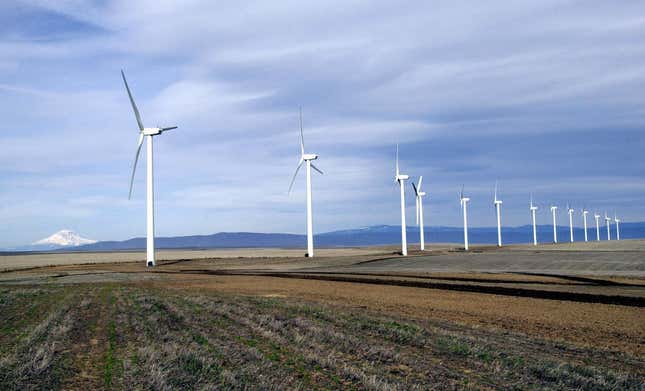
Amid intense domestic political seasons in both Beijing and Washington, President Barack Obama issued a rare top-level order halting a Chinese investment in the US, and the Chinese company said it will challenge the US leader on constitutional grounds. Given the potent stakes, look for more mutual threats and vitriol over the coming couple of months before calm prevails, oh, around mid-November.
The US will decide who is the next president on Nov. 6. Two days later, China will hold a leadership congress that will announce the country’s new paramount leaders, after which it will be safe to be publicly conciliatory. Until then, it is in both countries’ interest to keep up the heat.
On Sept. 28, Obama issued an executive order compelling China’s Ralls to divest itself of four wind farms that it bought near a naval facility in Oregon. In an email exchange, a person familiar with the case told me that Ralls’ lawyers will file a complaint on Oct. 1 asserting that Obama’s order was unconstitutional. The complaint will be filed with the Committee on Foreign Investment in the United States, or CFIUS, which vets investments for compliance with national security concerns, this person said.
But Ralls’ response (statement below) will not be regarded by Beijing as politically sufficient, Michal Meidan, a China analyst with the Eurasia Group, told me. “The Chinese will respond by…potentially targeting a US investment in China,” Meidan said by email. She described tit-for-tat trade disputes as a standard feature of current US-Sino relations. “Both sides recognize that as election/political transition season heats up, the other needs to take tougher stances to appease domestic constituencies. This is also why the Chinese will have to respond.…Beijing will need to strike a balance between a response that will be forceful enough to prove a point, but will not escalate relations too much.”
Meidan added: “The big picture remains one of an increasingly fraught and complex US-China relationship. Trade cases will become increasingly common, especially in clean tech. Diplomatic disagreements will remain on a host of issues (N. Korea, Iran, Syria, and maritime questions) as Washington pursues its ‘pivot’ to Asia. But both sides have already created numerous avenues for coordination and dialogue that will allow them to prevent ties from escalating. The balance will be tense, and maintaining it tricky.”
Here is a statement from Ralls, issued Sept. 28:
“We regret President Obama’s order today prohibiting a jobs-creating wind farm project in Oregon. The project poses no national security threat whatsoever, and the President’s order offers no explanation otherwise. The President’s order is without justification, as scores of other wind turbines already operate in the area where Ralls’ project is located. The selective and arbitrary singling out of Ralls’ project drives our effort to seek redress in US courts.
“Ralls Corporation will continue to uphold and protect US national security interests, and confirm its profound faith in the rule of law. We are confident that the courts will vindicate Ralls’s rights under the law and the Constitution and we intend to pursue the remedies that the law makes available.”